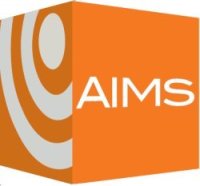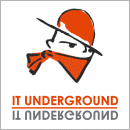TECH TRAINING 7 - Yin and Yang of Java Security Programming
April 26, 2006
Title: Yin and Yang of Java Security Programming
Trainer: Marc Schönefeld
Capacity: 24 pax
Seats left: CLASS IS CANCELLED
Duration: 2 days
Cost: (per pax) RM2800 (early bird) / RM3200 (non early-bird)
Content:
Opposed to the legends most white papers tell software written in Java is not secure by default. This course will provide the participants with the awareness to threats for java based software. It focuses on the current java (1.4.x , Tiger and Mustang releases) code based security features which are used to protect typical java application patterns (J2EE, Desktop Java, Applet, Servlets).
Secure Java Coding always starts from Sun’s secure programming guidelines which are presented by associating attack types and possibilities for refactoring to harden the system. Executed java classes are based on bytecode, therefore knowledge of Java bytecode is essential to understand and extend java static code analysis tools like BCEL and findbugs.
Other important terms in java code-based security are “protection domains†and “permission collectionsâ€. To reverse engineer protection domains an approach to extend the Java securitymanager is presented. A framework is presented that allows defining custom and complete permission sets when deploying java applications.
After hardening the JDK itself the java security engineer is concerned with raising the protection level of open source java middlweware components like Web servers (Jetty, Tomcat) or databases (cloudscape, pointbase).
Prerequisites
A laptop capable of compiling java code (preinstalled Sun JDK 1.4.2_x and IBM Eclipse IDE 3.0.x).
The student should have an understanding of most of the following concepts and technologies:
* Knowledge of basic Java programming tools (java, javac, javah).
* Basic to advanced Java and java bytecode programming knowledge as well as the core Java API is beneficial for understanding the key concepts
* Knowledge of basic security concepts like least privilege and security models
* Knowledge of common C based software threats is helpful for the JNI part
Day 1:
-
Introduction
-
Security
in a broader sense -
The
history of Java security (Felten, LSD, …)
-
-
Java
and security-
J2SE
Java 1.4 application areas-
Desktop
Java (J2SE) -
WebServer
Java (J2EE/JSP) -
BackendServer
Java (J2EE/EJB) -
DatabaseServer
Java (J2EE/JDBC)
-
-
-
What
to attack and protect-
Attacks
on Integrity -
Attacks
on Confidentiality -
Attacks
on Availability
-
-
Java
security architecture-
Core
java runtime environment security:-
JVM
security -
Java
language security -
Core
API security -
Classloaders
and protection domains
-
-
Application
security:-
JSSE
and SSL -
GSSAPI
-
JAAS
-
-
Java
Secure Coding
-
Sun’s
secure programming guidelines -
Antipatterns
-
Static
variables-
Derived
Vulnerabilities -
Possible
Attacks -
Precautions
and Detection -
PoC
[Covert Channels in JDK]
-
-
Privileged
Code-
Derived
Vulnerabilities -
Possible
Attacks -
Precautions
and Detection -
PoC
[The Disk filling applet]
-
-
Visibilities
-
Derived
Vulnerabilities -
Possible
Attacks -
Precautions
and Detection -
PoC
[XMLSniffing vulnerability in JDK 1.4.2_05]
-
-
Serialisation
-
Derived
Vulnerabilities -
Possible
Attacks -
Precautions
and Detection -
PoC
[Remote Attacks and Malicious Objects]
-
-
Native
Code-
Derived
Vulnerabilities -
Possible
Attacks -
Precautions
and Detection -
PoC
[The memory reading applet in the Java Media Framework]
-
-
Non-Adequate
permissions for 3rd party libraries and frameworks-
Derived
Vulnerabilities -
Possible
Attacks -
Precautions
and Detection -
PoC
[Remote code execution in JBoss 3.2.1]
-
-
Java
Arithmetics-
Derived
Vulnerabilities -
Possible
Attacks -
Precautions
and Detection -
PoC
[The Java.util.zip package and the flipping sign]
-
-
Day 2:
-
Java
Bytecode Engineering-
Quickwalk
thru the Java Bytecode instruction set -
Anatomy
of class files -
Bytecode
frameworks-
BCEL
-
ASM
-
Javassist
-
Findbugs
-
-
How
to write custom detectors in with BCEL and findbugs-
Classwalkers
-
Fieldwalkers
-
Methodwalkers
-
-
-
Finding
adequate permission sets for java applications-
Permissions
in JDK -
The
jchains framework
-
-
Hardening
Java protocols-
JDBC
security -
RMI
security (JRMP and RMI/IIOP) -
Serialisation
security
-
-
Hardening
Java middleware applications-
Tomcat
security -
Java
databases security
-
-
Security
in the new Tiger and Mustang releases -
Selected
use cases from the audience -
Summary,
Q&A and farewell
About Marc
Marc Schonefeld is an external PhD student at the University of Bamberg in Germany. His research covers the analysis of interdependencies between programming flaws (antipatterns) and vulnerabilities in software. By developing a framework for flaw detection he found a range of serious bugs in current java runtime environments (JDK) and other java based applications and middleware systems(like Jboss, Cloudscape database, …). Some of his findings led to the publication of a number of advisories by Sun Microsystems. In 2004 he presented at DIMVA and D-A-CH conferences and was speaker at Blackhat and RSA in 2003. Also in 2004 he was finalist for the European Information Security Award for his work on java based security antipatterns.




























